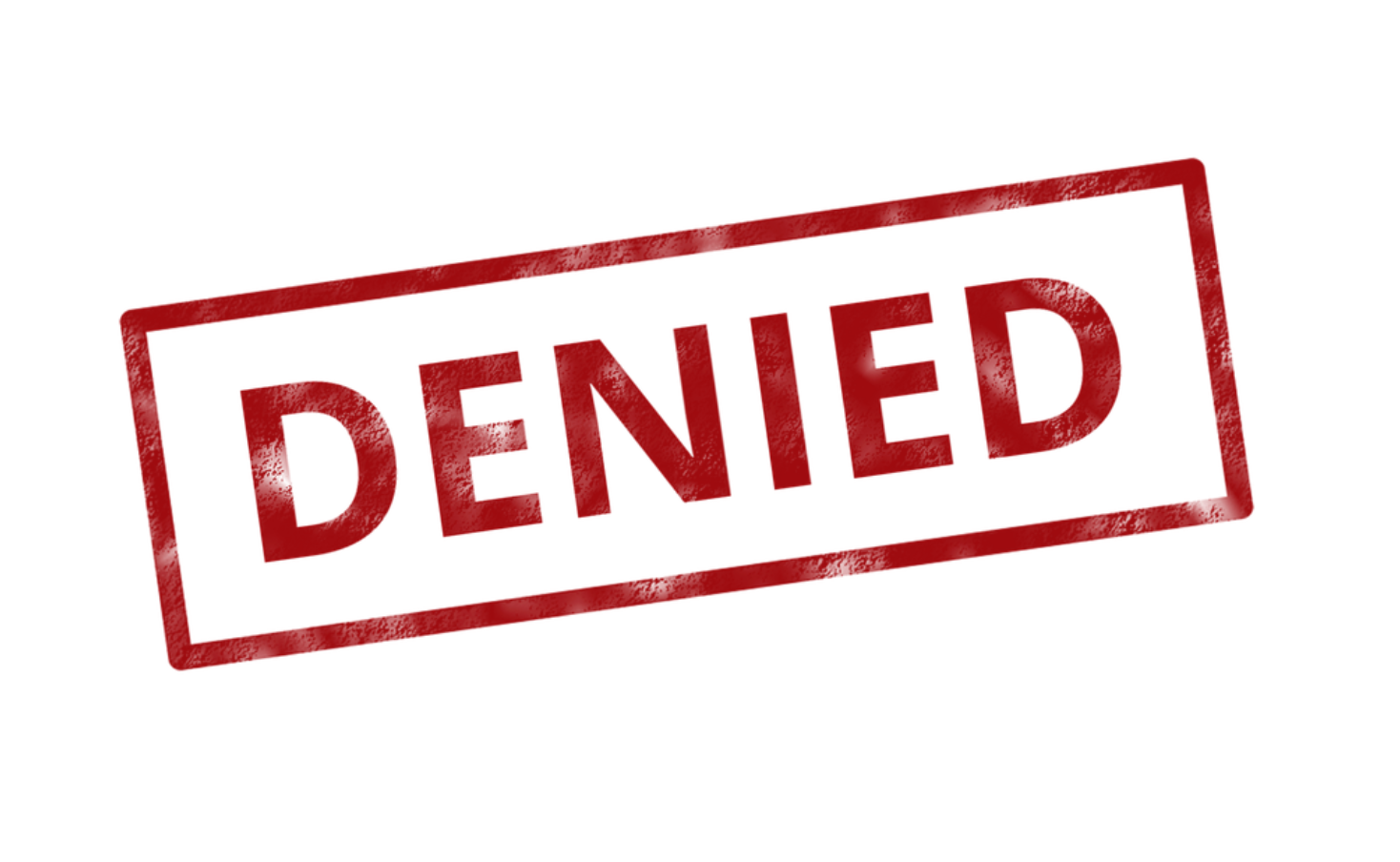As with your documentation of the accident itself, you should be very careful to document every step of the appeals process.
If you are in a car accident and have your insurance claim denied afterward, there are ways that you can appeal the claim with your company. While insurance companies can be difficult to deal with and might try to avoid granting claims when they can, there are concrete things you can do to make a better case for yourself.
Learning what to do after an accident is essential because accidents can result in huge costs that most people cannot pay out-of-pocket. You should never be in a position where you have to pay for these expenses yourself. In this article, we will lay out measures that you can take to appeal a rejected claim following an accident.
Why Can Insurance Claims Be Denied?
There are several reasons why insurance claims can be denied, and familiarizing yourself with them will help you better understand the appeals process. These include:
- Paperwork Problems: If you don’t take the time to fill out the necessary paperwork extremely carefully, you could get automatically denied before people actually get to see your claim. Claims go through a system and if certain sections are empty or contain the wrong information, the system might reject them. And even if your paperwork does make it to a representative, he or she might reject it hastily if mandatory sections are incorrect.
- Insurance Problems: Driving without insurance is extremely risky, and it could cause you to incur high charges, medical bills, etc if you are in an accident. Even if you do have coverage, it might not cover all of the costs you face in the event of an accident. It also sometimes happens that people allow their plans to lapse, and they become out-of-date when an accident occurs.
- Late Filing: You must follow up quickly with your insurance company following an accident. The exact statute of limitations on filing varies from state to state, but you should familiarize yourself with the law in your state so that you don’t file late.
- Failure to Get Necessary Medical Treatment: If you suffer an injury as the result of an accident and don’t seek medical help immediately, your claim could be denied because you will be unable to prove that whatever injuries you incurred were caused by the accident.
- Failure to File a Police Report: A related issue is the late filing of police reports. If you don’t do this immediately after an accident, you won’t be able to prove that you are not liable for it. Police might be unable to undertake the required follow-up procedures if reports are filed more than 24 hours after an accident, and you might face a fine.
How to Appeal A Denied Insurance Claim
If you do have a claim denied, there are specific things that you should do. It is essential that you take these measures quickly and decisively so that your claim can still be considered new. You should keep in mind that, beyond the particulars of your insurance company, there are laws that are specific to every state that could also impact your appeals process. Familiarize yourself with these policies or talk to a lawyer if you are not sure.
Understand the Denial
The first thing you should do is talk to the company and make sure you fully understand the reason that you were denied. There is no point in taking action to correct something if it might be the wrong action. If you are denied a claim, you should receive a formal claim denial letter that states the reason for your denial clearly. Claim denial letters may or may not provide information on how you can appeal the claim. If they don’t, you should be prepared to take the necessary actions yourself.
If the claim denial letter doesn’t state the reasons for the denial clearly, you can call your insurance company and try to clarify the reasons for the denial.
Gather Information
The next thing you should do is gather as much information about what happened as possible.
This can include:
- Documentation and photographs of the damage to your car and possibly other objects in the area. If you don’t have documentation of your own, talk to people who might have witnessed the accident and ask if they might have any.
- Statements from people who were witnesses to the accident
- Medical reports from people who were hurt in the accident
- Police reports from other people who were involved
Including additional evidence both from your own experience and that of others will help to strengthen your case for appeal.
Review Your Policy

You should take the time to go back over your policy in detail and figure out what exactly you can justifiably claim. It could be that you didn’t word your initial request correctly, or that there is another way to prove to the company what they owe you. Go over your policy point-by-point and make sure you understand the wording correctly. It is often the case that companies will try to find a way to deny claims if they think they can get away with it.
Contact Your Insurance Company
You should contact your insurance company immediately following a claims rejection to make sure you understand the procedures you have to go through to appeal it. Sometimes there are steps that are specific to individual insurance companies, so you should make sure that you know what your company in particular requires before you act.
Document and Submit Your Appeal
When you make your appeal, be sure to save a copy of it so that you can reproduce it again if necessary. Make a very careful note of exactly when you submitted it and to whom. Failure to do this could result in the company denying you again without due cause; you should be prepared to defend your position and the steps that you took at the right time.
Tips for Staying Organized Throughout the Appeals Process
Going through a claims appeal process can be a very emotional experience. Being involved in an accident is already traumatizing enough, but being rejected for insurance coverage can make the situation even worse. And there are usually a lot of details to deal with, so it can be easy to get confused. So you should make every effort to stay organized throughout the appeals process.
- Seek Legal Assistance: If you’re stuck about how to move forward with a claims appeal, you should consider talking to a lawyer. There are lawyers whose expertise is in precisely this area, and they can advise you on the correct steps to take going forward. It might mean some expenditure on legal services, but it will be worth it in the end if you find the right expert.
- Document Everything: As with your documentation of the accident itself, you should be very careful to document every step of the appeals process: evidence you collected, when you collected it, who you spoke and wrote to, etc. You will likely be asked to produce this evidence at some point, so it is essential that you collect it and keep it on hand.
- Follow Up Regularly: Part of the appeals process is making sure that you follow up with your insurance company. Not only should you submit the necessary information promptly, but you should stay on top of the company to make sure they are doing their part to move the process along. If you don’t, they might delay giving you an answer and then later tell you that it is too late.
- Track Expenses: You should also be sure to track any expenses that you incur in the appeals process. This will help you determine the total amount that you lose as a result of the accident and calculate what you need to recover financially. It is also important to provide complete evidence to your insurance company
- Stay Informed: You should also make an effort to stay informed about the larger process. Find out whether other people involved in the accident have made claims, produced medical records, gone to the police, etc. Any change in the overall circumstances surrounding the accident could have a bearing on your claims appeal.
Final Thoughts
Having an insurance claim rejected after an accident can be a frustrating and confusing experience. But if this happens to you, you shouldn’t simply lose hope and give up because you may well have a good case for appeal. Ideally, you should be prepared to make the right claim for yourself immediately following an accident. But if you do have a claim rejected, follow the steps required by your insurance company as swiftly and systematically as possible to maximize your chances for a successful appeal.


Join the conversation!